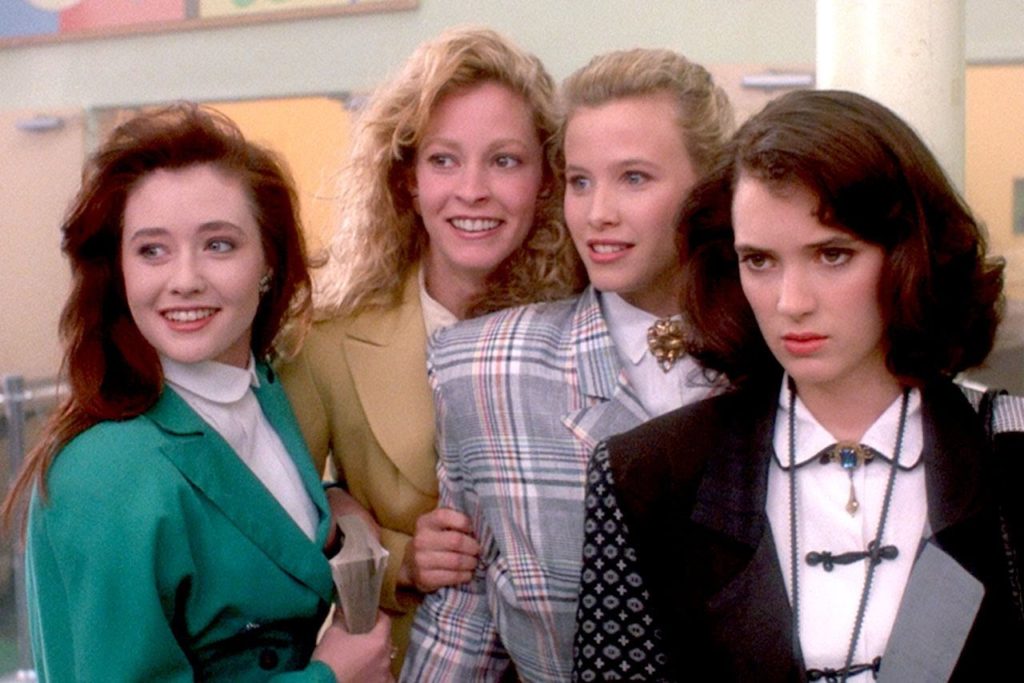 An ancient curse, probably Chinese in origin, ran something like this: ‘May you live in interesting times’. It’s a wry old phrase. The insinuation is that when things get interesting, then it’s often a useful code for bad news, so via a play on meanings, and without saying so outright, it’s a hex that seethes with its true intent. Subtle, veiled…so it probably wouldn’t generate a Twitter storm or begin the only process which now seems to matter – breaking the internet.
An ancient curse, probably Chinese in origin, ran something like this: ‘May you live in interesting times’. It’s a wry old phrase. The insinuation is that when things get interesting, then it’s often a useful code for bad news, so via a play on meanings, and without saying so outright, it’s a hex that seethes with its true intent. Subtle, veiled…so it probably wouldn’t generate a Twitter storm or begin the only process which now seems to matter – breaking the internet.
We live in times whereby what’s ‘interesting’ hinges almost entirely on taking an approach which is deliberately simplistic, contrary, and – intentionally or otherwise – often misrepresents something of the topic at hand, allowing a flood of corrections from people who feel all warm and glad inside to be able to say so. This is the sort of thing which now dominates; a pinch of bullishness, a determination to find a new angle and a fight to get it recognised. This process has become known as the ‘hot take’; it happens fast, it happens often and it’s largely to the detriment of debate of any kind – in my humble, and not-so-novel opinion, of course.
As a fan writer, I’ve always tried hard not to get embroiled in the versions of this which spill over into film fandom. But, as someone who also uses Twitter, I do though sometimes pick up on whatever novel approach has just been grafted onto cinema by new commentators who arrive, amazed, to discover that films made fifty years ago on occasion display the opinions and attitudes of their own social milieu, or, those who hit on an unpopular mindset and realise enough to know that they can sail it on a ship to some sort of minor fame. With the former approach, I always find myself thinking of another idiom – that a little learning goes a long way. Well, now it can be #trending a few hours after it issues forth, particularly if it segues with something else which is currently exercising the masses. For the latter, it takes a little resilience, as they’ll in turn get pulled apart, examined and discussed in a number of new hot takes, but it can get the debate going! Everyone will know them! And yeah, I’m aware of the weak irony of using an editorial piece, like this one, to state a contrary opinion about a modern trend, like this one. More and more, though, having anyone read your work depends solely on whether or not you have ‘an angle’. We apparently don’t have time to digest anything without ‘an angle’. The ‘hot take’ has fundamentally reshaped the way we write and the way we read today.
I’m not an idiot, or at least I hope I’m not. I can see how it works. Over the past…god, thirteen years or so that I’ve been uploading articles and reviews onto the Information Superhighway, on my own behalf or via sites belonging to others, it’s never been the case that any of my pieces have in any way ‘gone viral’. It very soon became apparent to me that very few people were ever reading, and this is the case to this day: thankfully, if that’s the right way to put it, I’ve never depended on writing for any sort of an income as I have a job which pays the bills with some spare; had I needed writing for anything other than a hobby, then who knows? This may have shifted the sands, changed how – or if – I wrote at all. I hope I wouldn’t have become a member of the Comment Police, and I hope I wouldn’t have spent my time doing the impossible – trying to change people’s minds or prove them wrong, to no purpose other than a flicker of personal gratification that I Turned Out To Be Right.
But I love writing, and it’s a hobby I’ve had since childhood. I love cinema too, so it makes perfect sense for me to write openly and honestly about films. On occasion, this has pitched my opinions very much against the rest of the ‘horror community’, and we have joked about our contrary natures here at the site for years. But it’s not a tactic; it’s not what we do to generate site traffic. If it was, then we’d have a hell of a lot more people stopping by than we do. No one can ever write entirely free from whatever buzz or hype is happening, sure, but, largely speaking, Warped Perspective’s writers try to steer around it as far as possible. A minimalist approach is the best way, in my book: find out enough about a new project via the channels we’ve come to depend on, but back away from other people’s reviews to get to the film intact and with an open mind. We want to be honest, and we want to write honestly about what we think. I think that’s fair.
Now, if I wanted to send the internet into a wobbler, then a crude attempt to draw people in would stand a far better chance than a lot of my more honest ramblings. Let’s take an example; and before anyone delightedly leaps all over this, it is not an example I happen to believe. But if I were to hack out a piece entitled ‘REASONS WHY JOHN CARPENTER IS A LOUSY DIRECTOR’, with a bit of judicious promoting, people would read it. They’d hate it, but they’d read it. People would ‘Quote Tweet’ and add some hyperbole about how I was a clown who clearly didn’t know how to appreciate the bleak wonder of The Thing (1982). The retweets could be retweeted. Eventually, someone would chip in to say I didn’t go far enough, and that Carpenter’s actually worse, he’s a [insert unpleasant and socially damning label here]. It would rumble on for a while, and enough people – even if a handful at first – would remember Warped Perspective, and be primed for my next piece, DARIO ARGENTO: A REAL LIFE DANGER TO WOMEN? It would only take a little, a very little imagination and a modicum of knowledge to do this sort of thing, and I maintain that there are many people out there who take this approach as a matter of course. It’s their modus operandi, no doubt aided and abetted by editors who want to get themselves on the map by any means and treat their writers as useful idiots.
So, is this the point of writing now? If you write an article and no one either feverishly agrees or ‘calls you out’ for being a bozo, then is it really an article at all? Some would undoubtedly say – no, not really. For my part, this is a tricky one for me because – although as I’ve acknowledged the numbers of people who read my work are small in comparison to many, many sites out there – some part of me is narcissistic enough to want them to be read. There’s no other reason for posting them where people can see them. I have notepads at home; I write my reviews here.
What I actually want from this process is harder for me to identify. On some reflection, I think a lot of my motivation is authentically just to share my enthusiasms, and on occasion, to vent my frustrations, because writing can be cathartic, too. Do I enjoy it when people respond to my writing? To an extent I do, yeah. I’ll maintain that I never deliberately court controversy, but speaking honestly, it can feel disheartening when pieces you felt proud of simply disappear into the ether, and people you feel would have enjoyed them will probably never, ever read them. I think maybe that’s it: the feeling of involvement, of adding to discourse about a beloved subject in even a small way. The way in which I part company so sharply with what counts as ‘debate’ today therefore relates to the nature of that debate; what people call a discussion is often nothing more than a tally of likes, and these can be mutually exclusive things. It’s not looking likely that we’ll ever generate the sorts of hits which would qualify us for Rotten Tomatoes here, then. But a glad word from a new director or a friendly comment from a reader feels an awful lot like it has more substance.
So, the curse of these ‘interesting times’ seems to be that what we deem worthy of notice nowadays has perhaps used invidious means to get there. We probably shouldn’t be too surprised, given that far more significant things than fan writing now live and die by social media (like, ahem, world politics) and very likely this article itself will reside in the TL;DR category. If you’re with me so far, though, we could start to deprive these features of the oxygen of assumed publicity. We could start to resist the pull of the clickbait, if we haven’t already. And as for writers, if you’re ever asked ‘what’s your angle?’ try to take a step back. None of us write in a vacuum, but hopefully we still have sight of our own impressions and ideas, and I wish that the world of online writing was more honest than this pitiable thing we’ve distilled it into. Surely, there’s still more to life – and what we like doing – than ‘likes’.
